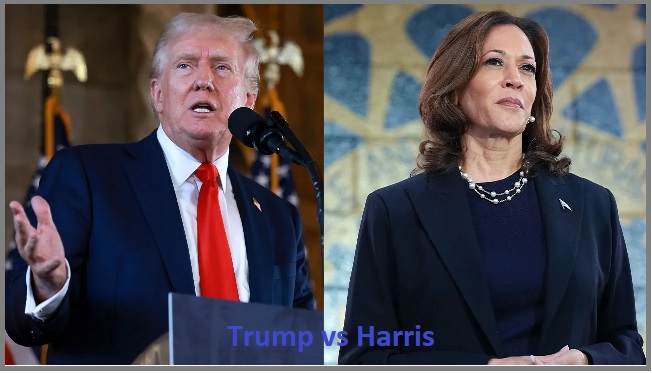
(Photo : Trump vs Harris)
Trump vs Harris
- A Michigan judge rejected the Republican National Committee's attempt to restrict overseas voting rights.
- The ruling ensures eligible overseas voters, including those with familial ties to Michigan, can participate in the 2024 election.
- Michigan's election law allows a U.S. citizen who never lived in the U.S. but has a parent, legal guardian, or spouse who last lived in Michigan to vote in the state.
- The ruling could potentially influence the outcome of the 2024 elections, reaffirming the importance of maintaining the integrity of the voting process.
In a significant ruling that could impact the 2024 elections, a Michigan judge rejected an attempt by the Republican National Committee (RNC) to restrict some Americans living overseas from voting in the battleground state. The RNC had filed a lawsuit earlier this month, arguing that Michigan's election laws improperly allowed U.S. citizens living abroad who had never lived in Michigan, but whose relatives had, to vote in the state. However, Michigan Court of Claims Judge Sima Patel dismissed the lawsuit, stating that the language being challenged by Republicans was consistent with federal and state law.
The RNC's lawsuit was part of a broader strategy to challenge voting rights in key battleground states ahead of the 2024 elections. The party's chairman, Michael Whatley, had previously stated that citizens living in Michigan should not have their votes canceled by those who've never lived in the state. However, Judge Patel's ruling ensures that eligible overseas voters, including those with familial ties to Michigan but who have never lived there, can participate in the 2024 election.
This could influence the election outcome in Michigan, a battleground state, by potentially maintaining or altering the balance of votes, especially if these voters lean towards a particular party. The decision upholds their voting rights and could contribute to higher voter turnout from this group, which could be crucial in a closely contested election.
Overseas Voting Rights and the 2024 Elections
Michigan's election law allows a U.S. citizen who never lived in the U.S. but has a parent, legal guardian, or spouse who last lived in Michigan to vote in the state, as long as the citizen has not registered or voted in another state. This provision, which the RNC sought to challenge, is now upheld by Judge Patel's ruling.
The ruling comes at a time when the U.S. is witnessing an increasingly polarized political landscape, with both major parties vying for every possible vote in the run-up to the 2024 elections. The decision also underscores the importance of overseas voters, who have often been overlooked in election analyses. According to the Federal Voting Assistance Program, some 2.9 million U.S. citizens living abroad were eligible to vote in 2020, though fewer than 8% of them did.
With Judge Patel's ruling, this demographic could play a more significant role in future elections. The ruling ensures that these overseas citizens, who could potentially sway the election results, are not disenfranchised.
Historical Context and Future Implications
The RNC's lawsuit and the subsequent ruling are reminiscent of past legal battles over voting rights. Historically, such disputes have often centered around issues of voter eligibility and the interpretation of election laws. For instance, during the 2000 U.S. presidential election, a contentious legal battle over the recounting of votes in Florida eventually reached the Supreme Court. The court's decision in favor of George W. Bush effectively determined the outcome of the election.
While the current dispute in Michigan is not identical, it shares similarities in terms of the legal wrangling over voting rights and the potential impact on election outcomes. The recent ruling by Judge Sima Patel in Michigan is a significant development in the ongoing debates over voting rights in the U.S. By upholding the rights of overseas citizens to vote in Michigan, the ruling could potentially influence the outcome of the 2024 elections.
* This is a contributed article and this content does not necessarily represent the views of btin.co.in









